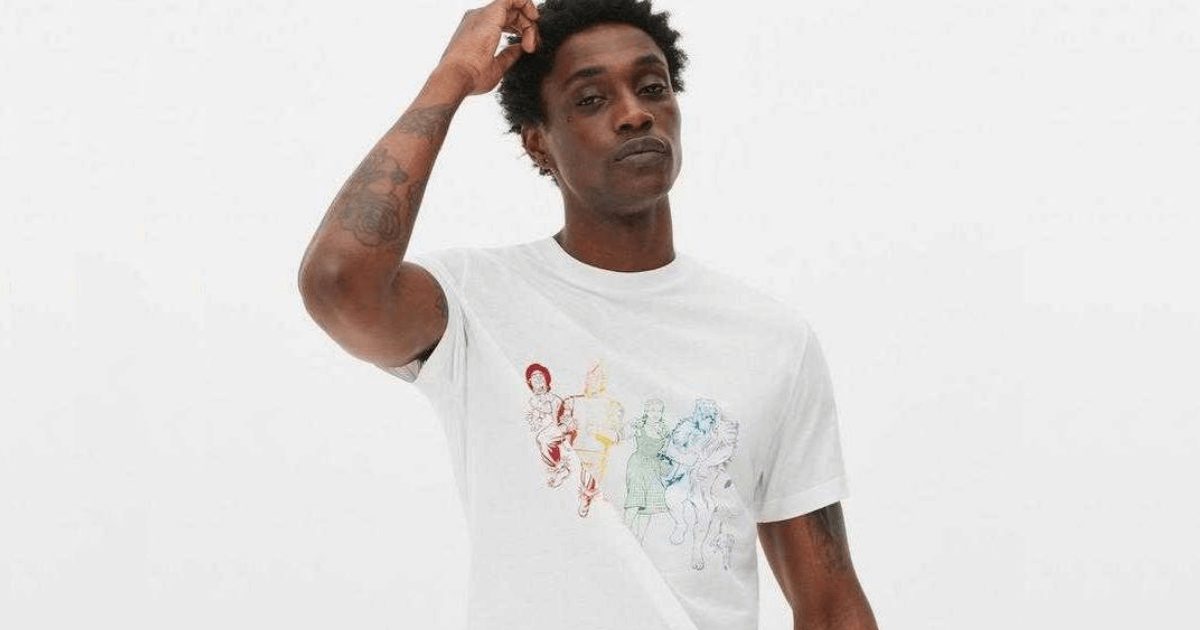Pride Month Bridges Gap Between Celebration and Sales

Pride Month is expanding into a year-round licensing opportunity, but it’s one that requires licensors, licensees, and retailers to walk the fine line of authentically celebrating the LGBTQ+ community without commercializing it.
That distinction is increasingly important, as the median household income for gay couples in the U.S. has risen to $114,000 in 2020 from $98,000 just five years earlier, making the LGBTQ+ community an attractive target for companies.
In bridging the gap between celebration and sales, many companies are focusing on partnerships, as partnering with LGBTQ+ creators and focusing on non-profit elements can help forge authentic connections with the LGBTQ+ community.
For example, Primark in the UK is expected to donate $210,000 (up from $180,000 in 2021) to the International Lesbian, Gay, Bisexual, Trans, and Intersex Association (ILGA), which has 1,600 members in 150 countries. Earlier this month, Primark launched the “We are Everyone” marketing campaign along with a product collection that featured a Disney-licensed Wizard of Oz direct-to-retail apparel line.
Abercrombie & Fitch and its Abercrombie children’s brand launched the “Everybody’s Collection” (including t-shirts, bucket hats, and hoodies) in partnership with LGBTQ youth mental health organization The Trevor Project. The retailer also bowed adult apparel featuring designs by the late artist Keith Herring. Abercrombie & Fitch committed a $400,000 donation to the Trevor Project.
Target’s 2022 Pride assortment, its largest to date, was designed in collaboration with LGBTQ+ designers, entrepreneurs, and Target team members. The 250+ piece collection features apparel, accessories, home goods, and food & beverage items. Designers involved in the range include Alice Butts, Jermel “Blu” Moody, Robin Lewallen, Bird & Marc, Olly Gibbs, and Jay Miller.
“Any authentic product has to be earnest and come with a message from the heart,” said Michael Storrings, an artist represented by Jewel Branding & Licensing, which developed a style guide for Pride Month featuring sample designs from the artists it represents. “June is the month where gay pride has a great commercial presence, but it is always important to offer a genuine message. After so many years of being denied in society, acceptance and self-respect are important to share with the community. Any product that supports and communicates this is not only worthy, but necessary in the marketplace.”
That recognition of the LGBTQ+ community has been a long time coming. There have been examples of representation over the years—Pernod Ricard’s Absolut brand broke ground in 1981 when it ran ads in the LGBTQ+ magazines “The Advocate” and “After Dark,” for example, and EssilorLuxotica’s Ray-Ban brand spotlighted a gay couple walking hand-in-hand in an ad in 2012—but recent consumer demand has forced companies to pay attention.
Forty-seven percent of respondents polled by the research firm Ipsos said they supported companies and brands promoting equality for the LGBTQ+ community, topping out at 68% in The Netherlands. And while 66% of those polled in Brazil reported having a gay or lesbian friend, relative or colleague, that dropped to 7% in Japan and South Korea, according to Ipsos, which conducted the survey in 27 countries. The research found that India topped the list of those “mostly or equally” attracted to the same sex at 17%, followed by Australia, Belgium, Great Britain and Brazil, all at 16%. The U.S. was at 13%.
And while there is demand for products, that doesn’t mean every Pride-focused marketing or consumer products campaign will be a success. In 2018, Primark and the charity Stonewall were criticized for their range of Pride merchandise that was made in Turkey, which has a poor record on LGBTQ+ rights.
In an effort to not just celebrate Pride Month but also raise awareness about the LGBTQ+ community’s ongoing struggles, content companies like Jellysmack, which represents and develops online video creators, are building online resources. This includes Jellysmack’s “Boys Do It Too” Instagram account where male-identifying viewers find support.
“We are all equal and deserve respect, acceptance, and the right to be who we are,” Jellysmack said.




